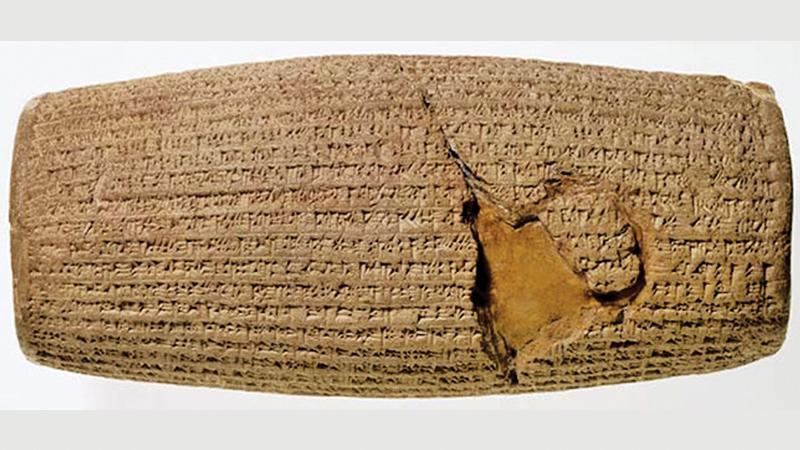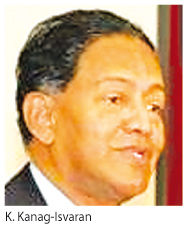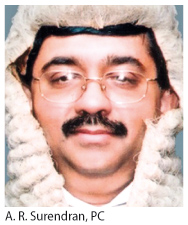
Speaking at the A. R Surendran P.C. memorial oration, President’s Counsel and eminent lawyer K. Kanag-Isvaran highlighted the need to obtain redress through Human Rights laws, adding that the law should be more result oriented. He made these observations delivering the keynote speech at the memorial oration on the topic of Human Rights and Accountability.
The basis of Mr. Kanag-Isvaran’s lecture unravelled around a youth named Theverajah Sharma, a case that was initially taken up by Mr. Surendran and then by Mr. Kanag-Isvaran. The following are excerpts from his lecture which spoke on introduction of Human Rights and its evolution to date and its failure to provide redress to people like Shanmugarathnam;
Theverajah Sharma, son of Shanmugarathnam, lived in Trincomalee. Thevarajah was the breadwinner of the family of five, including his parents and school going siblings. And as being qualified as a motor mechanic at the youth services council, he was working as a motor mechanic at a garage in Trincomalee.
 On the 23rd June 1990 Theverajah disappeared. He disappeared in what had been described as a Military operation. That was 27 years ago. He is still missing and parents are still looking for him. The disappearance or the abduction was brought to the notice of the UNHRC. In or about October 1999, there were allegations on violations by Sri Lanka of the International Covenant on Civil and Political Rights which became effective in 1976. ICCPR commits parties to respect civil and political rights of individuals, including the right to life.
On the 23rd June 1990 Theverajah disappeared. He disappeared in what had been described as a Military operation. That was 27 years ago. He is still missing and parents are still looking for him. The disappearance or the abduction was brought to the notice of the UNHRC. In or about October 1999, there were allegations on violations by Sri Lanka of the International Covenant on Civil and Political Rights which became effective in 1976. ICCPR commits parties to respect civil and political rights of individuals, including the right to life.
Sri Lanka is a party to it since 1980. The UNHRC determined that the Government of Sri Lanka was responsible for the disappearance of Theverajah and requested the government to communicate within 90 days, information about the measures taken.
The Sri Lankan Government acknowledging its obligation to provide the parents of Thevarajah effective remedy including the effective investigation into such disappearances and adequate compensation and undertook to refer the matter to the Sri Lanka Human Rights Commission (SLHRC).
SLHRC recommended that as compensation a sum of rupees three million eight hundred and eighty eight thousand be paid in 2005. This has not been complied with. No investigations into the disappearance of Thevarajah had been undertaken pursuant to the obligations under International Covenants on Civil and Political Rights (ICCPR) and relevant statutes, conventions.
Surendran challenged it in the COA which was dismissed. It was then appealed at the SC and 27 years later the anguish of parents of Theverajah is yet to be addressed.
“They tell me that they have lost faith in the promise of national and international institutions to hold accountable acts of violations of human rights, to protect from their ever increasing powers.
Not unnaturally in their minds the truth is that HR law has failed to accomplish its objectives. The HR agenda, they tell me, has fallen on hard times. It is in this background that I thought it appropriate to discuss some facets of Human Rights and accountability as a tribute to the efforts of Surendran to fight and answer to the pain and suffering of his client,” Mr. Kanag-Iswaran said.
Human Rights are moral principles or norms which describe certain standards of human behaviour protected as legal rights in international law. They are indivisible Fundamental Rights to which a person is entitled simply because he or she is a human being.
Upon birth you are invested with these rights. It is universal and inherent in all human beings; you don’t need an act of parliament to give you that right. It is recognised as so fundamental to your very existence. And it applies to all human beings regardless of their nationalities, location, language, religion and ethnic origin or any other status.
 HR law is therefore expected to operate to oblige states to refrain from causing harm to its own nationals or to others within its territorial jurisdiction. Its purpose was to erode absolute control that states can exercise over its nationals in order to secure that individuals are protected from excesses of states and governments, that is the basis of HR law. But the protection of HR attains powers of state a perennial problem of both international and municipal laws. However, the notion of Human Rights is not anything new.
HR law is therefore expected to operate to oblige states to refrain from causing harm to its own nationals or to others within its territorial jurisdiction. Its purpose was to erode absolute control that states can exercise over its nationals in order to secure that individuals are protected from excesses of states and governments, that is the basis of HR law. But the protection of HR attains powers of state a perennial problem of both international and municipal laws. However, the notion of Human Rights is not anything new.
More than two millennia before the French revolution introduced the declaration of Rights of the Man and the Citizen an ancient Persian monarch issued a charter that is considered to be the oldest declaration of Human Rights. The Charter is known today as the Cyrus Cylinder it was issued in 539 BC.
But this is not the only document. Documents which have enshrined the idea of Human Rights can be traced back to the year 622 - the constitution of Medina believed to be the first written constitution. Then the Magna Carta of 1215, the English Bill of Rights of 1689 and of course the famous French Declaration of Rights of Man and Citizens of 1789.
The modern notion of human rights emerged during the 18th century but began in earnest in 1948, by the adoption of the Universal Declaration of Human Rights by the United Nations General Assembly, in the aftermath of the Second World War. It was not a treaty nor was it ratified by the nations, nor did it create legally binding.
It was not until 1970 that Human Rights became a major force in International Relations. It took another six years for the United Nations to adopt a political rights treaty and then economic rights treaty, the international covenants that came into effect in 1976. Today there are six other rights instruments.
That expands human rights of individuals including women, children and migrant workers. What’s most remarkable is that each of these treaties has been ratified by more than 150 countries.
It is in this background that Thevarajah’s father asks the question that how much of these Human rights law that has actually influenced the behaviour of actions of Governments. How many countries have changed their behaviour after entering into these treaties? The truth is that many remain hostile to Human Rights whilst others blatantly violate human rights.
The recognised central problem with HR law is that it is vaguely defined or hopelessly ambiguous which gives government’s enormous discretion to make trade-offs between different rights.
The right to security is used to justify harsh enforcement methods. This is more so in societies in the throes of ethnic or religious strife which outsiders often fail to understand.
But the best that can be said about the Human Rights movement is that at least it reflects a genuine desire to provide moral support. If laws can’t be enforced by institutions at least the moral support should be available for oppressed people.
The Human Rights legal regime taken as a whole has made Human Rights the common moral language of international relations, which has at certain times forced governments to take Human Rights seriously, which they might not have otherwise done.
One example is GSP Plus. Today we can boldly say that the responsibility of governments to uphold and implement international Human Rights standards is no longer in doubt.
How about accountability? What is accountability? It is the readiness to have one’s actions, one’s judgements and failures to be questioned by others, to explain why deviation by the reasonable expectation by responsible others may have occurred and to respond responsibly when errors in behaviour is detected. Therefore accountability is closely related to principles of morality, ethics, and legal obligations.
Consequently one of the major policy questions in the area of human rights centres on accountability. Who are bound by International human rights laws and normative standards?
At one time, individuals had no standing in international law. Such rights vested solely in governments. The manner in which governments treated their own citizens was said to be an internal affair and not the business and legitimate concerns of other governments or international organisations. This all changed at the end of WWII and the trauma that followed. United Nations’ Universal Declaration on Human Rights reflected this change in 1948. In one of its preambles it famously declared “it is essential, if man is not to be compelled to have recourse as a last resort to rebellion against tyranny and oppression that Human rights should be protected by the rule of law.”
It was not until 1990 that any proper international accountability for war crimes and other human rights violations was established. Thevarajah’s father’s question is how successful has all these words have been in overturning the powers of national support and the protective shield against accountability, internal affairs and widespread cultural impunity resulting from it.
The answer given to this by Human rights activists is the dramatic and radical changes in the area of international human rights, international criminal law and the creation of international tribunals. They point to the establishment of the ICJ with jurisdiction to try specific individuals for war crimes, genocide and crimes against humanity including newly codified sexual and general terms.
They say this was the result of world getting tired of going indefinitely from one human rights crisis to another creating ad hoc tribunals for each specific case only if and when political forces allowed it. They recall the trials of Pol Pot of Idi Amin and Augusto Pinochet.
An international momentum has begun on moving from impunity to accountability and they view the establishment of the ICJ as a step in the right direction. The good news is that it is now accepted that HR treaties not only impose upon states an obligation as regards acts for which they are themselves responsible towards those subjects.
Securing long term solutions and reconciliation on conflicts that are inevitably generated by situations of impunity cannot be achieved by telling stories without the consequence of responsibility.
Consequence of responsibility is justice. Justice is an irreducible principle of morality. The imperative need is to consolidate, strengthen and further elaborate the existing mechanisms of regional protection of Human Rights. Ensuring that human rights violations, wherever it takes place, are investigated and adjudicated by independent bodies so that perpetrators and would be perpetrators will have no place to go and no place to hide.
What comfort does this give Theverajah’s father? He has lost his son and he is in search of closure, his family laments. You should never take a child from their loved ones. There is a mystique attached to your children. Speaking a few words on PC Surendran he shared his first memories of his colleague at a Karnatic musical recital.
“My first memory of Surendran goes back several years to one evening in this very hall, in 1990. In the glaring lights of the stage was this young man, very fair in a weitti seated cross legged in the stage accompanied by a music instrument of typical Karnatic musical recital, singing in the mellifluous voice, one of my favourite Karnatic compositions.”
“In my eyes Surendran was a rare man who held himself out as a willing provider of legal services to all members of the public, who may need it. He truly believed that the law ought not to be a tool of control, but rather a foundation for human dignity and prosperity.”
Surendran’s four-decade legal career included a master’s degree in international comparative law with distinction. He had also had the opportunity to attend several workshops at the European Commission Headquarters in Brussels and study tours on the European Court of Justice- Luxemburg, the Human Rights Commission and the European Court on Human Rights, thereby honing his skills and sensitivity to the subject of Human Rights and their place in jurisprudence.
